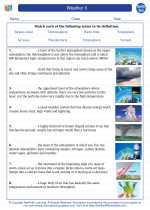Acceleration in Earth Science
Acceleration is a fundamental concept in Earth Science that describes the rate of change of an object's velocity. When an object changes its speed, direction, or both, it is said to be accelerating. This concept is essential for understanding the motion of objects in the Earth's atmosphere, on its surface, and in its oceans.
Understanding Acceleration
Acceleration can be described using the following equation:
Acceleration (a) = Change in velocity (Δv) / Time interval (Δt)
Where:
- Acceleration (a) is the rate at which an object's velocity changes.
- Change in velocity (Δv) is the difference between the final velocity and the initial velocity of the object.
- Time interval (Δt) is the duration over which the velocity change occurs.
Acceleration can be positive, negative, or zero, depending on whether the object is speeding up, slowing down, or maintaining a constant velocity.
Units of Acceleration
In the International System of Units (SI), the unit of acceleration is meters per second squared (m/s2). This unit indicates the change in velocity per unit time.
Calculating Acceleration
To calculate acceleration, you can use the following formula:
a = (vf - vi) / t
Where:
Study Guide for Acceleration
When studying acceleration, consider the following key points:
- Understand the concept of acceleration as the rate of change of an object's velocity.
- Recognize that acceleration can be positive, negative, or zero, depending on the change in velocity.
- Learn the units of acceleration (m/s2) and how to calculate it using the formula a = (Δv) / Δt.
- Practice solving problems involving acceleration, velocity, and time using the acceleration formula.
- Apply the concept of acceleration to real-world scenarios, such as motion of objects in the Earth's atmosphere and on its surface.
By mastering the concept of acceleration, you will gain a deeper understanding of the dynamics of motion in Earth Science.
.◂Earth Science Worksheets and Study Guides High School. Weather II
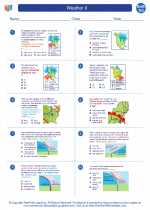
 Worksheet/Answer key
Worksheet/Answer key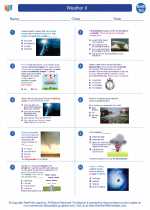
 Worksheet/Answer key
Worksheet/Answer key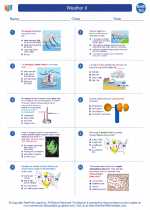
 Vocabulary/Answer key
Vocabulary/Answer key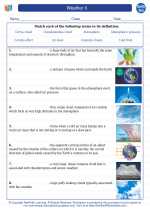
 Vocabulary/Answer key
Vocabulary/Answer key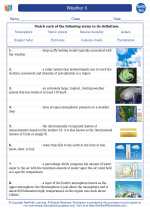
 Vocabulary/Answer key
Vocabulary/Answer key